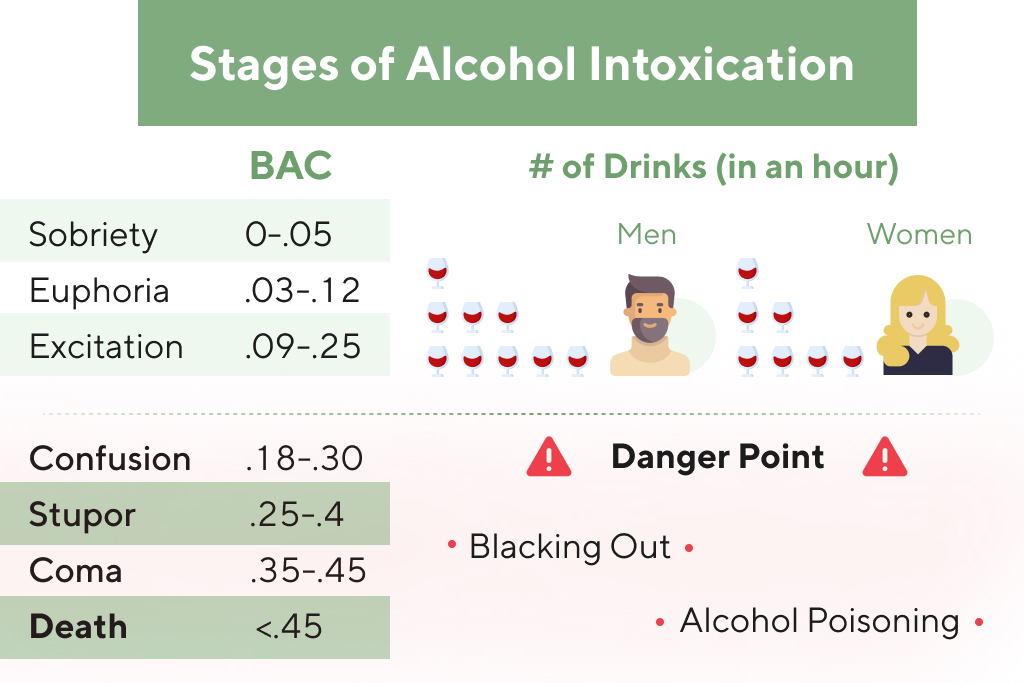Sober living
Nature vs Nurture: Is Alcohol Use Disorder in Our Genes?
These are things that we can remain mindful of as we continue to develop an understanding of alcoholism on a personal basis. Your genetic risk refers to the likelihood that specific genes or genetic variants passed down to you will lead to a particular condition. Graphical summary of three of the most important contributions to understanding the etiology of alcohol use disorders that have come, in part, from genetic analyses in COGA.
EARLY RESULTS: LINKAGE STUDIES
Subsequent analysis showed that AUTS2 was implicated in alcohol consumption in mice and alcohol sensitivity in drosophila 69. It is likely that, as for most complex diseases, alcohol dependence and AUDsare due to variations in hundreds of genes, interacting with different socialenvironments. An additional challenge in the search for genetic variants that affectthe risk for AUDs is that there is extensive clinical heterogeneity among thosemeeting criteria.
That doesn’t mean you’ll absolutely develop AUD if you have a family member living with the condition. You may have a higher genetic predisposition, but the underlying causes of AUD are multifaceted and complex. By staying informed, seeking alcohol treatment when necessary, and leveraging resources from institutions like the NIAAA, individuals can chart a path toward recovery and resilience. This underscores the importance of early intervention and awareness, especially in https://ladymosquito.ca/the-most-addictive-foods/ homes where family members have a history of alcohol-related issues. Data suggests that individuals hailing from families with an annual household income surpassing $75,000 face a higher susceptibility to becoming an alcoholic in comparison to their counterparts from economically modest backgrounds.
STRATEGIES FOR IDENTIFYING GENETIC ASSOCIATIONS WITH ALCOHOLISM
- This finding suggested to researchers that the risk variants promoted certain brain pathways that contribute to the development of behavior patterns and disorders.
- Research has illuminated that genetics is a significant factor in the risk of developing Alcohol Use Disorder (AUD), but it’s not the only one.
- They may increase the overall risk by increasing drinking, orreduce risk by reducing drinking.
- The establishment of the NIAAA Data Archive and the Final NIH Data Management and Sharing Policy (NOT-OD ) provide an ecosystem and structure for the sharing of future and past (legacy) data from the COGA studies.
- And if half of alcoholism risk is heritable, the other half must derive from other sources.
- Moreover, people who use drugs are facing an increasingly dangerous drug supply, now often tainted with fentanyl.
Rather, in AUD, only about fifty percent of the risk appears to be attributed to our genes. This is relatively small in comparison to schizophrenia, where genetics can explain eighty percent of the disease predisposition. Therefore, as research progresses, consideration must still be made for the environment—the “nurture”—that individuals were raised and live in. We need to spend more time in gene discovery before bringing it into patient care,” Zhou said. Awareness of the need for large sample sizes for GWAS has resulted in the formation of large scale collaborations for sharing data, such as the Psychiatric Genomics Consortium 82. However, one risk of this approach is to potentially increase phenotypic heterogeneity.
- In regions where alcohol is either prohibitively expensive or challenging to procure, there’s a noticeable reduction in alcohol problems and misuse.
- Women are at risk of developing AUD faster than men due to differences in body mass, hormones, and metabolism.
- The exception is nicotine addiction with which there is a strong genetic correlation 1.
- Genetic diseases, on the other hand, are illnesses that are caused by mutations in the person’s DNA.
- Extensive study of the alcoholmetabolizing genes has demonstrated their important role in disease risk.
Am I at Risk of Becoming Addicted to Alcohol?

If you identify with any factors, you can take steps to change them so that they no longer put you at risk for an AUD. Beyond that, Palmer and his team want to develop a better understand of how the genes they’ve https://english-lessons-online.ru/node/843 identified might influence these traits, but using animal and cellular models. Researchers at the University of California at San Francisco (UCSF) are using fruit flies to find the genetic causes of alcoholism.

Genetic Influences on the Development of Alcoholism
Notably, genes related to pain sensation collaborated with neural channel and excitation genes, vital for neuroscience communication. The study highlighted genes with silent mutations affecting alcohol use and emphasized the significance of studying gene groups over individual genes. Scientists and those in the medical field know there’s too much riding on the answer to this one question.
- COGA’s wealth of publicly available genetic and extensive phenotyping data continues to provide a unique and adaptable resource for our understanding of the genetic etiology of AUD and related traits.
- While the adult data in COGA are extensive, two family cohorts, adolescent and young adults in Prospective Study and older participants in Lifespan Study, will benefit from additional participants and data collection.
- In the 4th edition of the DSM (DSM-IV), alcohol dependence (AD) and abuse were considered as mutually exclusive diagnoses that together made up AUDs.
- Get professional help from an online addiction and mental health counselor from BetterHelp.
Alcoholism’s Genetic Component

It’s difficult to directly answer the question of whether or not alcoholism and genetics go hand-in-hand. Alcoholism itself is a complicated disease, but there do seem to be genetic links involved. One of the most common questions people have surrounding alcoholism is whether or not it’s genetic, and if so, what happens when alcoholism runs in the family.
- Blood tests on subjects displaying this effect showed increased levels of acetaldehyde, a breakdown product of alcohol, which resulted in an uncomfortable sensation of warmth in the skin, palpitations and weakness.
- The enzyme breaks down acetaldehyde, but slight variations in the gene’s DNA code in these subjects caused the enzyme to work more slowly.
- Genes that affect AUD risk are involved in various biological processes and mental states and traits, including physiological responses to alcohol and stress, alcohol metabolism, addiction-related neurobiology, and behavioral tendencies such as impulsivity.
Family TiesAt coga’s outset, researchers at sites around the country sought to identify families severely affected by alcoholism. Alcoholism is genetically complex, meaning that multiple genes are likely to be involved, and their interactions with one another and with an individual’s environment also have to be examined before a complete picture of the processes that can lead to the disorder is assembled. People are also complex and manifest problems with alcohol in diverse ways, especially in the early stages of disease, although cases come to resemble one another clinically in the later stages of illness.
Genes contributing to the risk of alcohol dependence
Their mission is not just to understand the genetics of alcohol use disorder but also to provide resources and support for those struggling with substance abuse. According to the 2022 National Survey on Drug Use and Health (NSDUH), 15.1 million people in the US suffer from alcohol use disorder (AUD). This encompasses issues often referred to as alcohol dependence, alcohol misuse, alcohol addiction, and even the oft-used term—alcoholism. Until we get there, research will continue focusing on identifying genetic variants and possible mechanisms http://newezo.ru/theosophy/news/ob-etom-dolzhen-znat-kazhdyiy-vrednyie-ingredientyi-v-kosmeticheskih-sredstvah.html behind risk.




